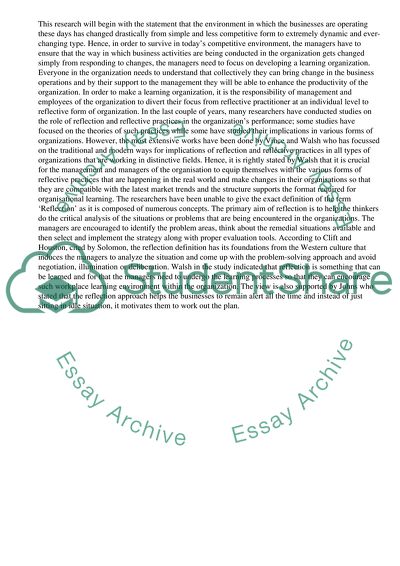Cite this document
(“Role of Reflection and Reflective Practices in Organisation's Enhanced Essay”, n.d.)
Role of Reflection and Reflective Practices in Organisation's Enhanced Essay. Retrieved from https://studentshare.org/management/1453543-reflective-manager
Role of Reflection and Reflective Practices in Organisation's Enhanced Essay. Retrieved from https://studentshare.org/management/1453543-reflective-manager
(Role of Reflection and Reflective Practices in Organisation'S Enhanced Essay)
Role of Reflection and Reflective Practices in Organisation'S Enhanced Essay. https://studentshare.org/management/1453543-reflective-manager.
Role of Reflection and Reflective Practices in Organisation'S Enhanced Essay. https://studentshare.org/management/1453543-reflective-manager.
“Role of Reflection and Reflective Practices in Organisation'S Enhanced Essay”, n.d. https://studentshare.org/management/1453543-reflective-manager.


